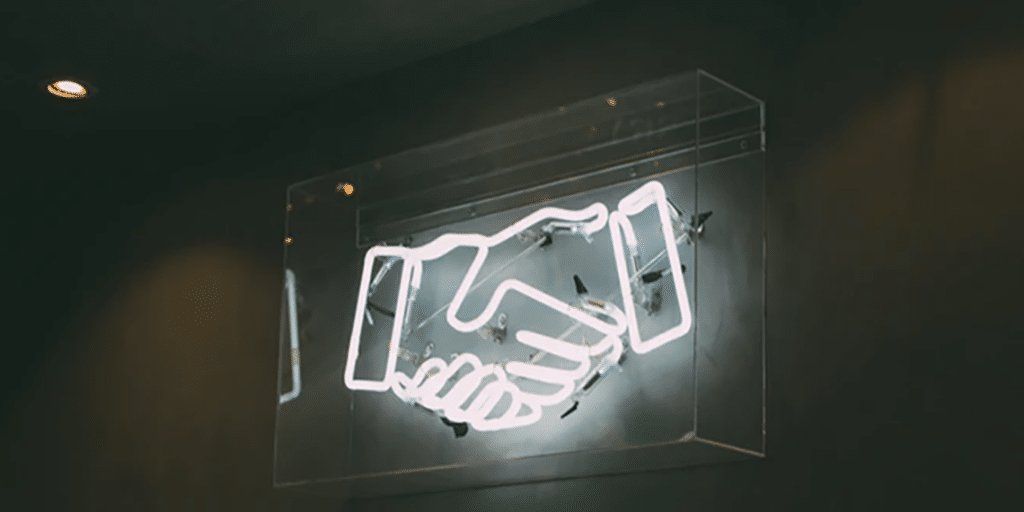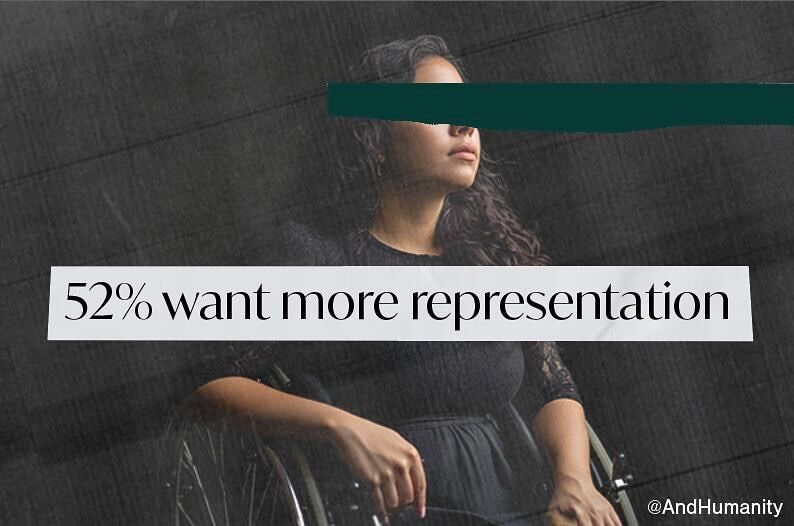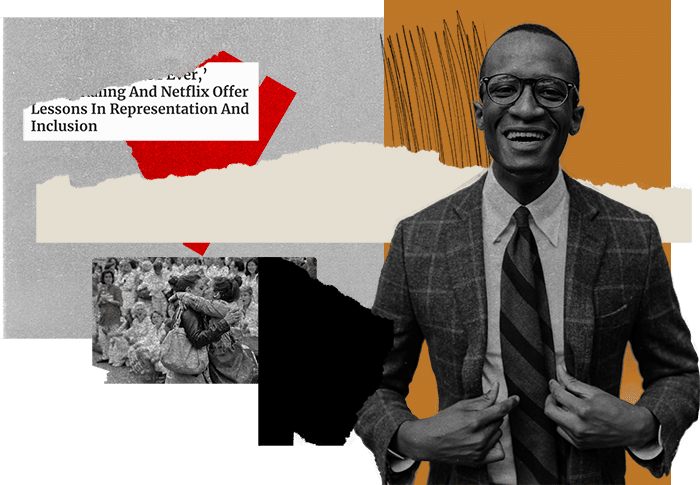A burger chain talking about mental health.
A razor company contributing to the dialogue around the #MeToo movement.
A cola conglomerate using images that could have been lifted straight from a Black Lives Matter rally.
What do these all have in common? They’ve all been accused of “woke-washing”.
In an attempt to connect with Millennial and Gen Y audiences who are willing to spend more money on socially conscious products, brands are appropriating social activism in the hopes of grabbing headlines and market share.
“This is why when I see these issues that I have devoted my life to being used to sell products and promote a brand that has put zero effort into these causes previously, it makes me angry.“
In all the ways, I’m the target audience for these ads. I’m a Millennial (albeit I fall into the older echelons of this age demographic straddling Gen X and Millennial cultural influences); Furthermore, I’m an activist who now works as a diversity and inclusion professional. But perhaps most importantly, I have a disposable income that I am willing to part with on products that I perceive as socially conscious and in alignment with my values.
Mental health is a topic that is always forefronted for me. I’m a trained social worker who for years worked in the mental health field providing trauma-informed support to survivors of sexualed violence. So to say that I support the #MeToo movement is putting it mildly. I’m also active in anti-racism movements and some of my work has centered on supporting newcomer communities. So why am I putting this all out there? Not to flex, but to underscore how important these issues are to me – mental health, believing survivors, racial justice. This is why when I see these issues that I have devoted my life to being used to sell products and promote a brand that has put zero effort into these causes previously, it makes me angry. It’s also pretty obvious what they are doing and comes across as disingenuous and downright cynical. Suffice it to say that these campaigns have the opposite effect on me – I now avoid rather than embrace these brands.
The litmus test

Don’t get me wrong, I’m not saying that companies should avoid taking a stance and speaking out about an issue(s) they believe in. In fact it’s quite the opposite, I would love it if all companies suddenly grew a social conscience and used their vast resources to tackle social and environmental justice.
If the companies I have alluded to above (they know who they are) had come to me before putting together these campaigns, there are 3 points I would have advised them to think long and hard about. They may have been able to avoid the woke-washing trap if they had only asked themselves these questions:
- Authenticity – Is the issue we are choosing to provide a platform for one that lines up with our values as a company? With our company mission and vision? Is it part of our company’s DNA?
- Alignment – Is the issue one that is meaningfully connected to the product(s) or brand?
- Allyship – Have you sought involvement from the groups of people most impacted by your social issue of choice? Have you positioned your company as an ally? “Nothing about us without us” – this is the rallying cry that was first attributed to the disability movement and was later popularized by LGBTQ2S+ communities. Representation matters, as does, being presented with the opportunity to tell your own story. Companies who get this part of the equation right, provide the platform and the resources and get out of the way so underrepresented stories can be told by the people who live them.
Getting it wrong, and making it right

There are definitely companies that stand out as practicing authentic brand activism rather than only using social justice as a marketing tool. Of course this doesn’t mean that only brands that originally grew out of social consciousness can have the monopoly on inclusive marketing. If a company truly wants to take on social change they need to approach it with intention, thoughtfulness and an understanding of the issue(s) at hand. They also need to be prepared to take and mitigate risks whenever possible. Issue-based advertising is almost always controversial so backlash and negative criticisms should be par for the course.
“…with the world on pause due to COVID-19 restrictions they still have time to make it right.“
One of the best strategies from the get-go is to be very intentional about the issue(s) you decide to address before seeking out meaningful involvement from people who are deeply connected to it. Importantly, the people or organizations (often non-profits) should be compensated or benefit somehow from their involvement. Their expertise is valuable and the toll emotional labour has on oppressed communities is important to take into account. In my opinion, when the groundwork has been laid to present an authentic story, the backlash will most likely not come from individuals who are being represented but by people who disagree with the stance that is being taken on the issue. A good example of this type of backlash (which I don’t consider a bad thing) is Target and their support of the Black female entrepreneur of Honey Pot when their ad was targeted by Trolls. In this case, the backlash was met by support from allies and increased sales.
But what can you do if the backlash comes from the people whose opinion should matter the most (the people whose stories are being told to sell your product)? Can you come back from a huge mis-step?The short answer is yes. I want to emphasise that a generic apology is not going to cut it. First, you need to admit that you made a mistake. But more importantly you need to understand why it was a mistake in the first place. The best way to learn from and not repeat past mistakes is to take the time to listen to the people who are critical especially if they are from impacted communities. Hold consultations, be in conversation, encourage dialogue. Then take action to correct your mistakes and make the necessary changes. And don’t forget to give credit to those that took the time to teach you these lessons.
Unfortunately, I have yet to see a company take all the steps that I have outlined above. When Pepsi was faced with the backlash from their Kendall Jenner debacle they put out one of those generic statement non-apologies I spoke about, which in turn just garnered Pepsi more criticism. When Barnes and Noble Diverse Editions campaign for Black History Month 2020 infamously backfired, they may have missed an opportunity to make it right. They did cancel the campaign but have yet to take this opportunity to put more resources into promoting writers of colour. However, with the world on pause due to COVID-19 restrictions they still have time to make it right.
Getting it right
I want to end off on a positive note here with one company that is checking all the boxes – and that’s Patagonia. The outdoor apparel and gear company embedded corporate social and environmental responsibility in their vision and mission: “We’re in business to save the planet.” As an outdoor apparel company, they are well positioned to align their brand and products with environmental justice and they have done so since the inception of the company in 1973. From donating percentages of sales to environmental movements to hiring based on commitment to environmental activism, they have gone beyond merely using an issue-based strategy to sell products.
The Future
Socially conscious or inclusive marketing is a long-term plan that may take years to reap the benefits but it will be well worth the effort. The numbers back up a values-based approach to marketing and it’s one of the most trusted ways to avoid the woke-washing trap. However, not only do brands have to be authentic, but the causes they take on should be relevant to their core purpose, and most importantly they need to have meaningful consultation and seek the involvement of the experts – those whose lives are impacted the most by the issue at hand. That is to say that companies can expect to be in it for the long haul and must understand that one campaign about mental health or toxic masculinity will not cut it with Millenials and Gen Z consumers who are already cynical about woke-washing.









